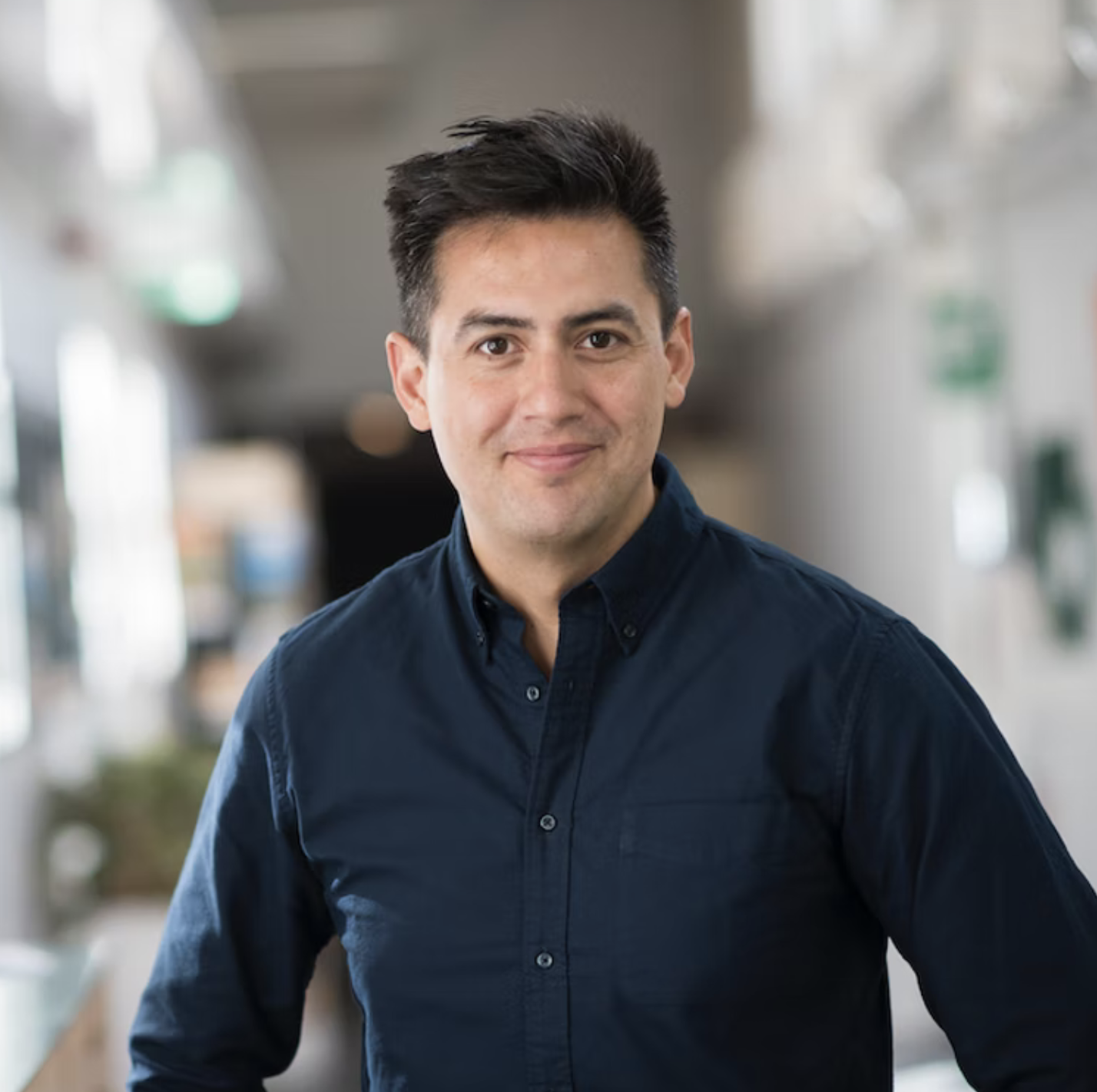KeynotesRequirements Engineering 2022
Keynote Speakers
John D. Lee

Title: Designing for People: Enigmatic, Neglected, and Emergent Requirements
Abstract: Identifying requirements when designing for people presents unique challenges. The relative ease of identifying many human-related requirements masks the depth of these challenges These deep challenges are compounded by the increasingly pervasive and powerful applications of machine learning that even include human-AI teaming. The individual and societal success of these applications depend on capturing three types of human-centered requirements: enigmatic, neglected, and emergent.
Bio: Dr. John D. Lee is the Emerson Electric Professor at the University of Wisconsin-Madison. He investigates the issues of human-automation interaction, particularly trust in automation. John has investigated trust in domains that include UAVs, maritime operations, highly automated vehicles, and deep space exploration. He helped to edit the Handbook of Cognitive Engineering, the APA Handbook of Human Systems Integration, and is also a co-author of a popular textbook: Designing for People: An introduction to human factors engineering. Additional information can be found at: https://directory.engr.wisc.edu/ie/Faculty/Lee_John/.
Didar Zowghi

Title: Requirements Engineering Education and Training: Experiences from 20+ years in the Trenches
Abstract: Many Requirements Engineering academics have encountered challenges in their design and delivery of high quality RE courses. Commercial RE education providers in industry face similar challenge in RE training. It has long been recognised that in RE education and training (REET) we need to combine the human centred tasks of stakeholder engagement, with the technical tasks to model, analyse, specify and validate requirements. Unfortunately, many of these skills cannot be learned by just listening to a lecture, or by performing simple exercises on a computer. The classroom environments have also changed dramatically in recent years as an increasing number of universities offer online courses.
In this keynote, Dr Zowghi will share some experiences from her 20+ years journey of designing and teaching requirements engineering courses and her extensive REET collaborations with amazing colleagues.
The RE community has developed extensive curriculum plans and has identified skill sets that requirements engineers need to develop. We have also engaged in meaningful discourses about how requirements principles and practices can best be taught and learned in several editions of REET workshop and panel discussions at the RE conference. Dr Zowghi will also present a challenge to the RE community on how to develop innovative and engaging activities to teach the future generation of requirements engineers.
Bio: Dr Didar Zowghi is Professor of Software Engineering and currently works for CSIRO's Data61 as Senior Principal Research Scientist. She leads the "Software Engineering for Responsible AI" and "Diversity and Inclusion in AI" at Data61. She has previously held many leadership positions at the University of Technology Sydney (UTS): Deputy Dean of Graduate Research School, Director of university research centre for Human-Centred Technology Design, Director of Women in Engineering and Information Technology, Head of Department of Software Engineering, and Associate Dean Research. Before joining academia, she worked in software industry in the UK and Australia as a programmer, software engineer, analyst, consultant, and project manager. Didar has been actively involved in the RE community for many many years. Additional information about Didar Zowghi can be found at https://people.csiro.au/Z/D/didar-zowghi.
Victor Galaz Rodriguez

Title: AI and Systems Design for People and Planet
Abstract: Our living planet, with its biosphere and climate system, has changed at unprecedented speed in the last decades.
Changes in the climate and Earth system, which were assumed to unfold in a distant future and only affect future generations, are happening now, with increasing speed and force. We now live in a fundamentally new planetary reality where we are more connected, where the climate system is destabilised, and where the biosphere that supports humanity is becoming more fragile and depleted. At the same time, humanity is entering a period of rapid technological transformation. Sensors, autonomous drones, and numerous applications of artificial intelligence (AI) could be at the verge of altering how we perceive and modify our living planet, forever. Some of these technological advances could augment our abilities to mitigate the climate crisis and build resilience. Others however, could undermine sustainability efforts through complex and indirect system effects. How can we make sense of the interacting changes between a new planetary reality, and an evolving technological landscape? And how can we differentiate between technological hype, and innovations that would make a real difference for both people and planet? I will explore these issues in depth in this talk, and explore the various ways that sustainability, climate change and changes in our living planet need to be part of technological innovation, as well as sustainability and systems design.
Bio: Victor Galaz is Associate Professor in political science, deputy director of the Stockholm Resilience Centre at Stockholm University, and programme director of the Beijer Institute’s Governance, Technology and Complexity programme. His research explores the political challenges created by rapid climate and environmental change, including globally networked risks, and the sustainability implications of novel technologies. His work about societal challenges created by technological change includes governance dimensions of geo-engineering, early warning systems of epidemic outbreaks, uses of social media to detect ecological change, online mis- and disinformation on environmental issues, and sustainability risks embedded in early applications of artificial intelligence. He is currently working on the book “Dark Machines” (for Routledge) about the impacts of artificial intelligence, digitalization and automation for the Biosphere.
Additional information about Victor Galaz can be found at: https://thebreakthrough.org/people/victor-galaz-rodriguez.
Martin Glinz, Jane Cleland-Huang, Bashar Nuseibeh

Title: 30 Years of RE Conference - Trends, Opportunities, Failures and Landmarks
Abstract: This year we mark the 30th milestone for IEEE International Requirements Engineering 2022 conference. To celebrate the occasion, Martin, Jane and Bashar are coming together to discuss the requirements engineering domain and the role played by RE conference in fostering the research trends, landmarks and opportunities as well as what could have been done differently and can be improved in the future.
Bio:
Martin Glinz: Martin is a Full Professor Emeritus and Head of the Requirements Engineering Research Group at the Department of Informatics, University of Zurich, Switzerland.
Website: https://www.ifi.uzh.ch/~glinz
Jane Cleland-Huang: Jane is a Full Professor and Chair of the Department of Computer Science and Engineering at University of Notre Dame, USA.
Website: https://engineering.nd.edu/faculty/jane-cleland-huang/
Bashar Nuseibeh: Bashar is a full Professor of Software Engineering and Chief Scientist at Lero – the Irish Research Centre for Software, and a full Professor of Computing at The Open University, UK.
Website: http://mcs.open.ac.uk/ban25/
Wed 17 AugDisplayed time zone: Hobart change
19:00 - 20:10 | |||
19:00 20mDay opening | Welcome to RE 2022 Opening and Closing G: Jean-Guy Schneider Monash University, G: Muneera Bano CSIRO's Data61, P: Eric Knauss Chalmers | University of Gothenburg, P: Gunter Mussbacher McGill University | ||
19:20 50mTalk | Most Influential Paper: "How do software architects consider non-functional requirements: An exploratory study" Opening and Closing David Ameller no affiliation, Claudia Ayala Universitat Politècnica de Catalunya, Spain, A: Jordi Cabot Open University of Catalonia, Spain, P: Xavier Franch Universitat Politècnica de Catalunya | ||
22:50 - 00:00 | |||
22:50 70mKeynote | AI and Systems Design for People and Planet Keynotes | ||
Thu 18 AugDisplayed time zone: Hobart change
19:00 - 20:10 | |||
19:00 70mKeynote | Requirements Engineering Education and Training: Experiences from 20+ years in the Trenches Keynotes Didar Zowghi CSIRO's Data61 and UNSW Sydney | ||
22:50 - 00:00 | |||
22:50 70mKeynote | Designing for People: Enigmatic, Neglected, and Emergent Requirements Keynotes | ||
Fri 19 AugDisplayed time zone: Hobart change
22:50 - 00:30 | Keynote 4 - Martin Glinz, Jane Cleland-Huang, Bashar NuseibehKeynotes / Opening and Closing at Bilby Chair(s): Muneera Bano CSIRO's Data61 | ||
22:50 70mKeynote | 30 Years of RE Conference - Trends, Opportunities, Failures and Landmarks Keynotes | ||
00:00 30mDay closing | RE Cares Recap & Conference Closing Opening and Closing | ||